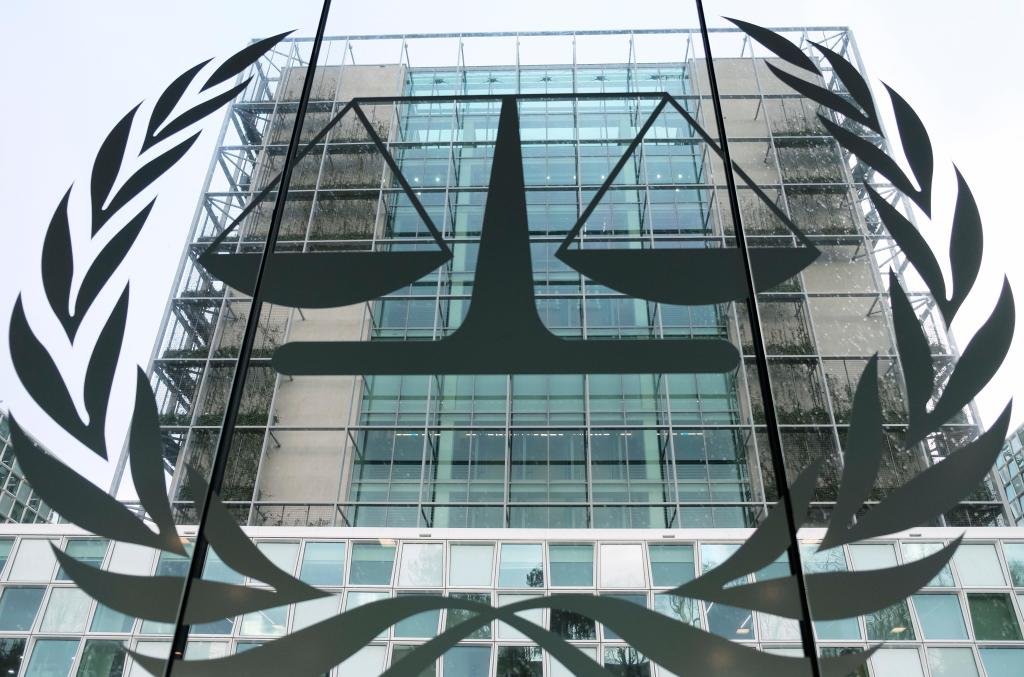Hague, Netherlands – US President Donald Trump’s executive order banning the international criminal court can endanger testing and investigation into the world’s only permanent global tribunal for war crimes and massacre.
Trump, in an order signed on Thursday, accused the “US and our close aide Israel” of “illegitimate and unfounded action.” This refers to the arrest warrant to the ICC released last year for Israeli Prime Minister Benjamin Netanyahu and his former Defense Minister Yo Galant on alleged war crimes in Gaza.
The Hague-based court condemned the move. The court said in a statement, “The court stands strongly by its personnel and vows to provide justice to millions of innocent victims of atrocities worldwide and continue hope.”
What is International Criminal Court?
The court was made a final stop for the most serious international crimes in 2002: war crime, crime against humanity, massacre and aggression.
The United States and Israel are not members, but 125 other countries have signed the founding Treaty of the court, Rome law. The ICC joins when the nations are unable to prosecute crimes over their region.
The newest member of the court, Ukraine, formally joined January.
Judges in the court have convicted 11 people. The congregation warlord Thomas Lubanga was the first, sentenced to 14 years in jail in 2012.
In July 2019, a congenital warlords were convicted for atrocities committed during a cruel ethnic conflict in a mineral-rich region of the Congo in 2002–2003. Bosco Nataganda was sentenced to 30 years in jail.
In 2021, the court convicted Dominic Ongwen for dozens of war crimes and crimes against humanity, forcing several murders and marriages in Uganda. Ongwen was a one -time child soldier, considered as a cruel commander of a notorious rebel group, known as Lord’s Resistance Army.
What will these restrictions do?
The exact effect is not clear. Trump’s executive order called for emergency powers from several separate laws to allow the US Treasury Department and the US State Department to release specific sanctions.
The court’s chief prosecutor, Karim Khan, is a possible target, as included in the Netanyahu investigation, including three judges who issued an arrest warrant. The restrictions can also target the court, stop their operations.
During his previous term in the office, Trump banned former prosecutor Fato Bansoda and one of his duties on the investigation of alleged crimes in Afghanistan. The investigation covered crimes committed by Taliban, American troops and American foreign intelligence operators in 2002. Trump’s sanctions prevented Bensouda from reaching any US-based financial assets of court staff and prevent him and his immediate family from entering the United States.
President Joe Biden lifted the sanctions on taking over in 2021.
Why has the court issued an arrest warrant for Netanyahu?
In November, a pretial panel of judges issued arrest warrants for the Netanyahu, Gallant and Hamas military head, accused of war crimes and crimes against humanity in connection with the war in Gaza.
Warrant said that the reason for believing Netanyahu and Galless was that by restricting human assistance, used “starvation as a method of war”, and intentionally targeted targeted citizens in Israeli campaign against Hamas in Gaza. Israeli officials deny the allegations.
Warrant first marked that a leader of a major Western Shakti has been accused of war crimes and crimes against humanity by a global court. This decision wanted Netanyahu and other internationally suspects, putting them at risk of arrest when they travel abroad and potentially separate them.
Do these restrictions end the current tests?
The court is currently without a single case for the first time as he arrested his first suspect in 2006.
It has issued 33 unsalted arrest warrants. From Netanyahu and Russian President Vladimir Putin to Uganda rebel leader Joseph Koni and Gamlet Guchmazov are former government members of the Breakawaway region of South Ossetia in Georgia. Koni is accused of war crimes and crimes against humanity. Guchmazov is accused of torture.
Three decisions are pending. Former Car Football Federation President Patriss-Adounded Nagasona and Alfred Jatkom, who mainly in the Central African Republic, have accused alleged Christian rebel group leaders of several cases of war crimes and crimes against humanity.
Ali Mohammad Ali Abdul Rahman Ali, who is accused of torturing as the leader of the Janjavid Militia in Sudan, was wrapped last year.
For a few hours last month, the court prepared to detain Libya’s chieftains. Instead, the member state Italy sent Osama Anzim home. Osma is also known as al-Masri, Anzim has led the Tripoli branch of the Institute of Rehabilitation and Rehabilitation, which is a notorious network of detention centers run by the government-backed Special Defense Force.
